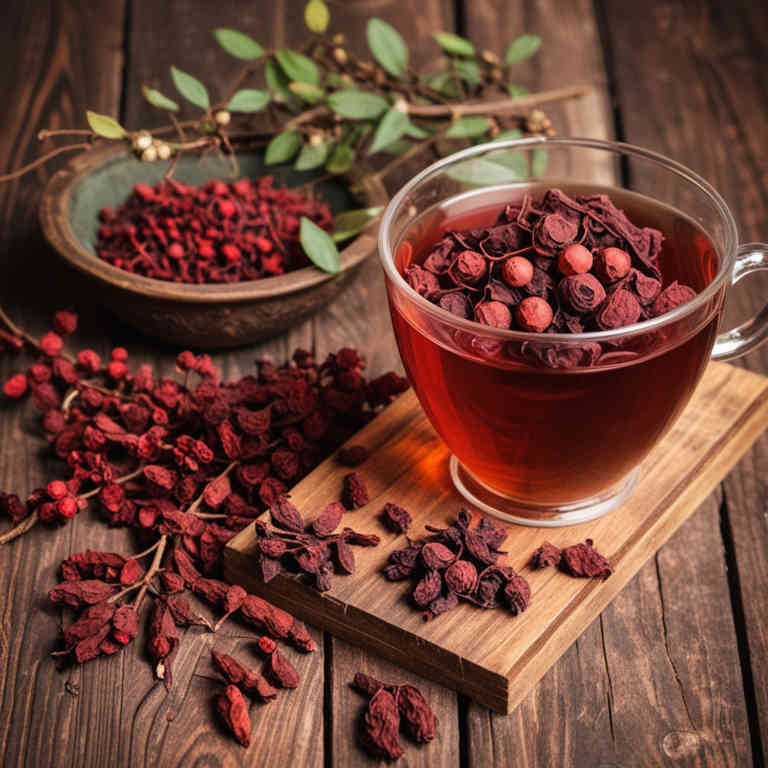Schisandra chinensis tea for medicinal use

Schisandra chinensis tea is a traditional herbal preparation made from the fruit of the Schisandra chinensis plant, also known as Chinese magnolia vine.
This tea is valued in herbalism for its unique combination of sweet, sour, bitter, pungent, and salty flavors, which are believed to balance the body's energies. It is commonly used to support liver function, enhance mental clarity, and reduce stress and fatigue. In traditional Chinese medicine, it is also used to improve respiratory health and promote longevity.
Schisandra chinensis tea is often consumed as a tonic to strengthen the body and support overall vitality.
Uses
Schisandra chinensis tea has been used to enhance vitality, support the nervous system, and improve mental clarity for centuries in traditional Chinese medicine.
Historically, it was valued for its ability to strengthen the body's qi, or life force, and was often consumed by scholars and warriors to boost endurance and focus. In modern times, it is used as a nootropic to enhance cognitive function and reduce stress, and its berries are also popular in herbal supplements for their adaptogenic properties. The tea is believed to balance the body's systems and promote longevity.
Today, it remains a popular choice for those seeking natural support for energy, mood, and overall well-being.
Benefits
Schisandra chinensis tea has health benefits such as enhancing mental clarity, supporting liver function, and boosting the immune system.
This herbal preparation is known for its adaptogenic properties, which help the body manage stress and promote overall well-being. It may also aid in improving respiratory function and increasing physical endurance. The tea is often used in traditional Chinese medicine to balance energy levels and support detoxification processes.
Regular consumption of Schisandra chinensis tea can contribute to improved vitality and resilience against illness.
Constituents
Schisandra chinensis tea active constituents include lignans, alkaloids, and volatile oils, which contribute to its medicinal properties.
These compounds are known to support liver function and enhance mental clarity. The lignans, such as schisandrin and deoxyschisandrin, are particularly valued for their antioxidant and anti-inflammatory effects. Schisandra chinensis tea is also believed to improve endurance and reduce stress by modulating the body's response to physical and emotional challenges.
Overall, this herbal preparation is widely used in traditional medicine for its adaptogenic and hepatoprotective benefits.
Preparation
To make Schisandra chinensis tea, start by boiling fresh or filtered water in a pot or kettle.
Once the water is hot, add 1 teaspoon of dried Schisandra chinensis berries to the water and let it steep for 10 to 15 minutes. After steeping, strain the tea into a cup to remove the berries. You can drink the tea warm or add a small amount of honey or lemon for flavor.
This herbal tea is known for its unique taste and potential health benefits, including supporting energy levels and mental clarity.
Side Effects
Schisandra chinensis tea may lead to gastrointestinal discomfort, including nausea, vomiting, and stomach cramps, especially when consumed in high doses.
It can also cause insomnia or restlessness due to its stimulating properties. Prolonged use may result in liver toxicity, particularly in individuals with pre-existing liver conditions. Additionally, it may interact with certain medications, such as those for diabetes or hypertension, altering their effectiveness.
It is important to consult a healthcare professional before using this tea, especially for extended periods or in combination with other treatments.